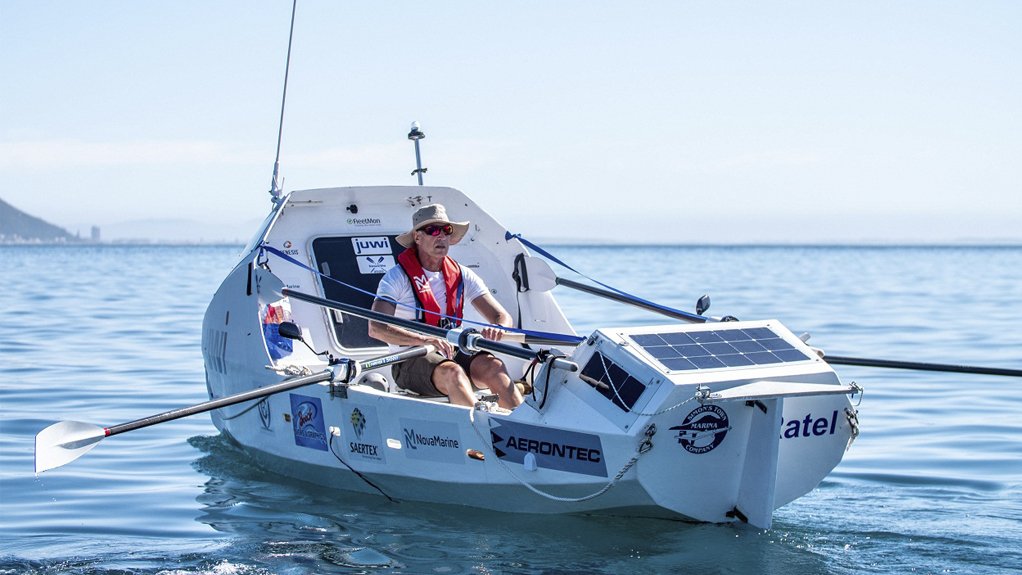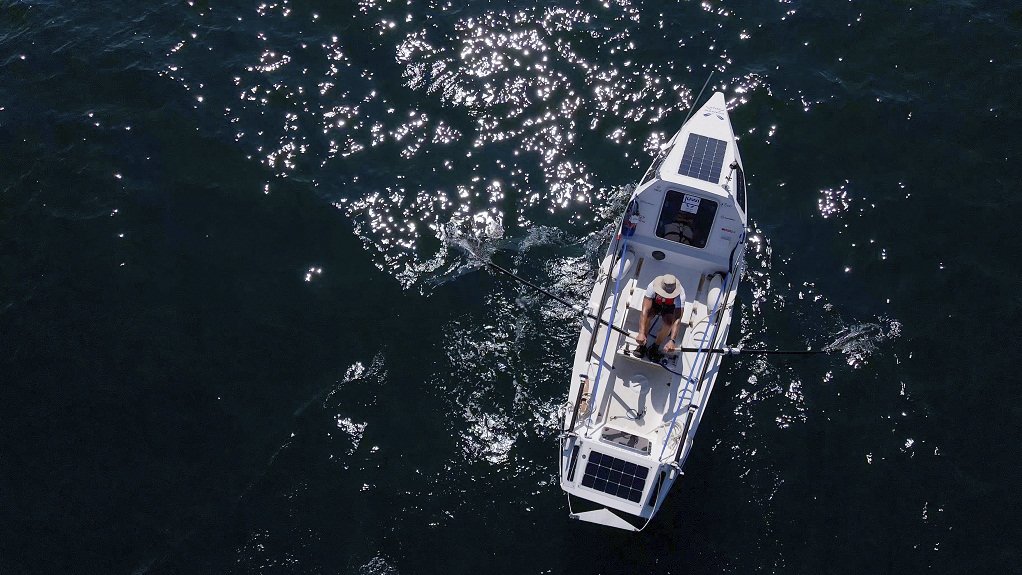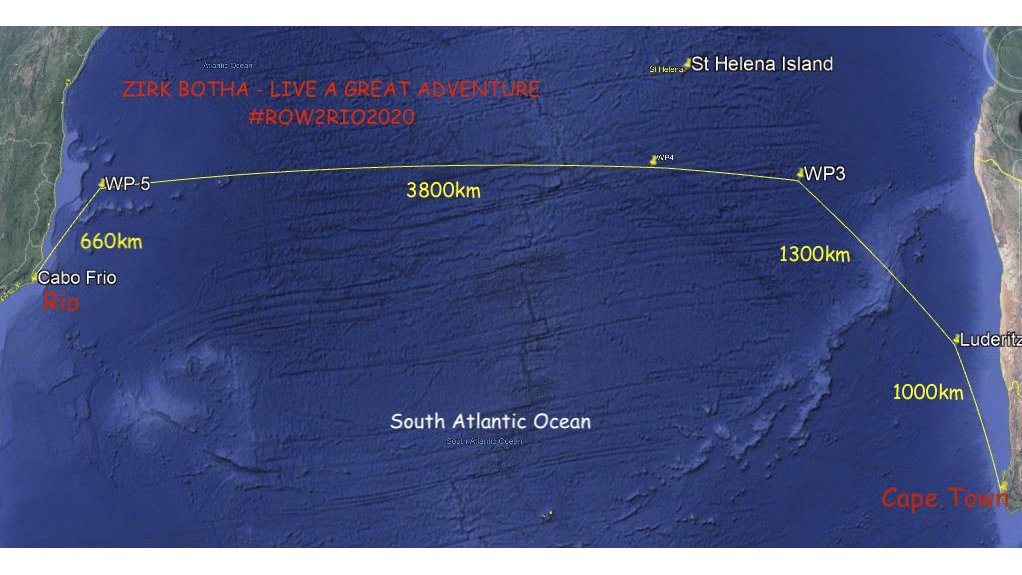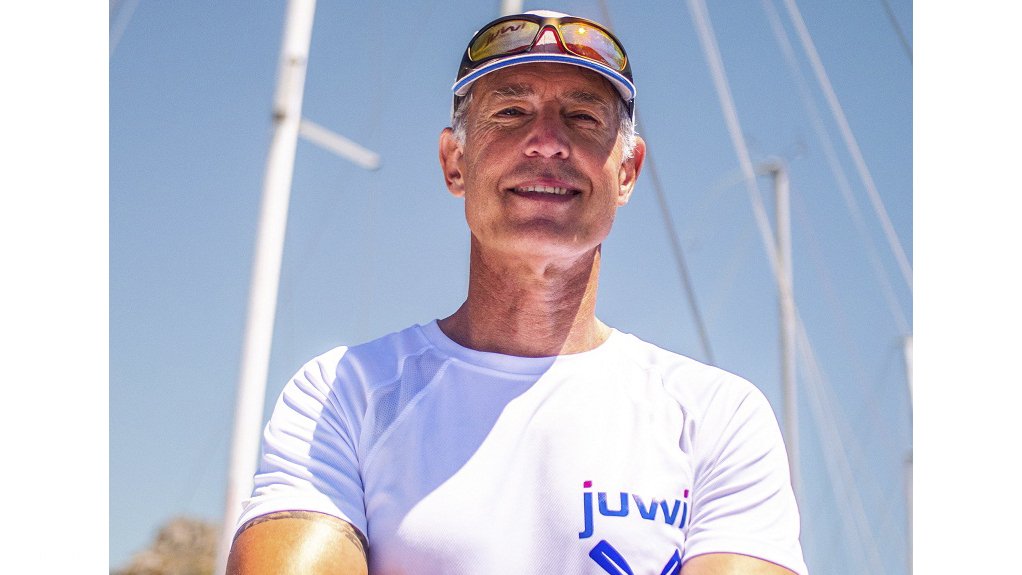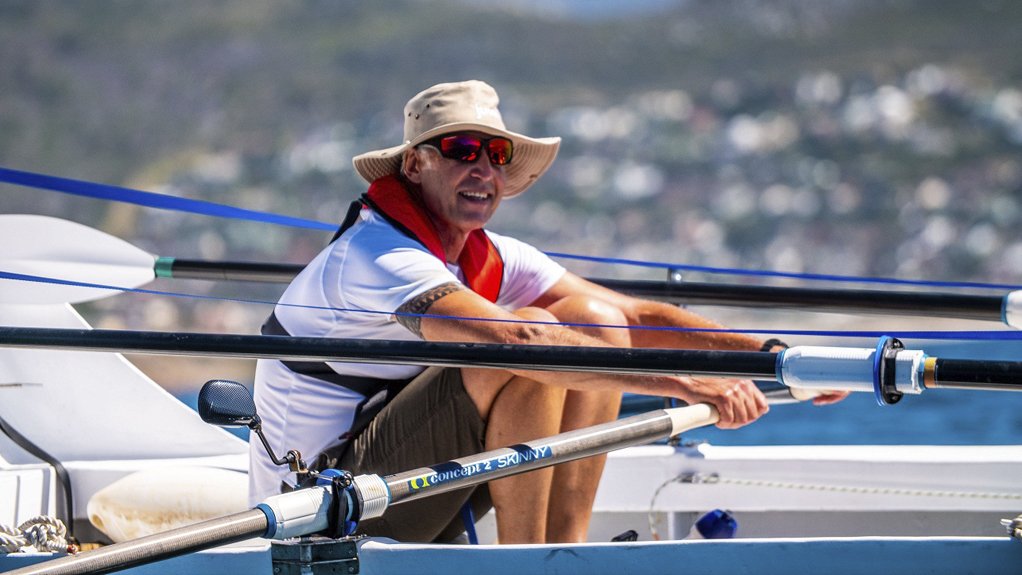Capetonian prepares for 7 000 km solo transatlantic row
Capetonian Zirk Botha – a former naval combat officer and adventure racer – is preparing final arrangements to depart from Cape Town on a 7 000-km-long solo rowing trip on his boat Ratel across the Atlantic ocean, to Rio de Janeiro.
Sponsored by the company he works for – juwi Renewable Energies – Botha plans to depart from Granger Bay on December 1, following which he will row for about 100 days unassisted. His boat’s electrical equipment will run solely from solar panels and batteries.
He will follow what is known as the Great Circle Route, which is not a direct route, but one which makes use of prevailing winds. “I first head out in a north west direction to benefit from the prevailing south easterly wind in Cape Town. After 1 000 km, once I am north of the latitude of Lüderitz Bay in Namibia, and about 300 nautical miles offshore, I turn westerly so I can have the benefit of the wind behind me to take me across the Atlantic,” Botha says. He states that on the Brazilian side of the Atlantic, the wind is north easterly. “I have to arrive on the Brazilian coast north of Rio to have the wind behind me to head into Cabo Frio, where the old Rio de Janeiro yacht club is, which is where I will be finishing.”
Averaging 14 hours a day of rowing, Botha will be completely unsupported, therefore meaning he can expect rough seas, large waves and swells, as well as large cargo vessels crossing his path as he moves through the shipping lanes.
“As a solo rower, I have to apportion sufficient time each day to rowing, otherwise I am going nowhere, but I also have to take breaks to rest, eat and drink – my plan is to row seven 90-minute sessions a day, with 30-minute breaks in between,” he says.
Botha adds that sleeping will be a critical part of his daily routine, as it will enable his body to recover from the physical exertion. “Not getting enough rest could result in compromising my immune system, but this must be weighed against the effect of not making progress whilst I am sleeping.”
Botha has trained extremely hard, but he stresses that the challenge requires endurance more than cardio-vascular fitness. “I’ve done intensive rowing plus weight and endurance training, but I know that my biggest challenge will not be physical, but rather mental.”
His energy requirements are significant, so eating nutritionally-dense food and staying well-hydrated is very important to maintaining his strength. “I will probably consume 10 litres of water and 8 000 calories of food per day – if you consider that a normal person consumes approximately 2 500 calories a day, it’s a lot. Even so, I expect to lose over 12 kg crossing the Atlantic,” says Botha.
“My nutrition planning for the crossing has had to take into consideration that I have limited storage space on the boat. Everything that I pack is dehydrated. I have had to source food that contains no water to reduce weight and bulk. I will eat six to seven meals a day, varying from dehydrated freeze-dry food to muesli with protein powder, sweets and dried fruit.”
juwi South Africa MD Greg Austin says that Botha’s crossing epitomises the way juwi is innovating and “breaking barriers” for the environment. “Zirk’s pioneering spirit, courage, grit and commitment to the environment are qualities that juwi respects and fully aligns with. I am deeply admiring of Zirk taking this on in the name of sustainability and climate change; this challenge to me is highly correlated with the severe challenges we all face as planetary citizens right now, and into the foreseeable future.
Botha notes that the solo row will help highlight the impact of fossil fuels and irresponsible consumerism on the planet. “Renewable energies are essential to a sustainable future.
“For my solo row from Cape Town to Rio de Janeiro I will be 100% self-sustaining for over three months. This provides a perfect showcase to support the message that 100% renewable energy is the solution. I will be totally reliant on solar panels and solar-charged batteries as the source of electricity for my water maker (desalinator), auto-pilot, safety equipment, radio and satellite communications equipment.”
“My job equips me to speak with knowledge regarding the competitive costs and benefits of renewable energy. The platform that the ocean crossing creates will allow me to drive home the message that the increased uptake of renewable energy is a key solution to the climate change challenges faced by our planet.”
Botha served as a naval combat officer in the South African Navy, where he also qualified as a combat diver. During his time in the Navy, he completed three Atlantic crossings. He is also a qualified 200T Yacht Captain and has sailed extensively.
Article Enquiry
Email Article
Save Article
Feedback
To advertise email advertising@creamermedia.co.za or click here
Press Office
Announcements
What's On
Subscribe to improve your user experience...
Option 1 (equivalent of R125 a month):
Receive a weekly copy of Creamer Media's Engineering News & Mining Weekly magazine
(print copy for those in South Africa and e-magazine for those outside of South Africa)
Receive daily email newsletters
Access to full search results
Access archive of magazine back copies
Access to Projects in Progress
Access to ONE Research Report of your choice in PDF format
Option 2 (equivalent of R375 a month):
All benefits from Option 1
PLUS
Access to Creamer Media's Research Channel Africa for ALL Research Reports, in PDF format, on various industrial and mining sectors
including Electricity; Water; Energy Transition; Hydrogen; Roads, Rail and Ports; Coal; Gold; Platinum; Battery Metals; etc.
Already a subscriber?
Forgotten your password?
Receive weekly copy of Creamer Media's Engineering News & Mining Weekly magazine (print copy for those in South Africa and e-magazine for those outside of South Africa)
➕
Recieve daily email newsletters
➕
Access to full search results
➕
Access archive of magazine back copies
➕
Access to Projects in Progress
➕
Access to ONE Research Report of your choice in PDF format
RESEARCH CHANNEL AFRICA
R4500 (equivalent of R375 a month)
SUBSCRIBEAll benefits from Option 1
➕
Access to Creamer Media's Research Channel Africa for ALL Research Reports on various industrial and mining sectors, in PDF format, including on:
Electricity
➕
Water
➕
Energy Transition
➕
Hydrogen
➕
Roads, Rail and Ports
➕
Coal
➕
Gold
➕
Platinum
➕
Battery Metals
➕
etc.
Receive all benefits from Option 1 or Option 2 delivered to numerous people at your company
➕
Multiple User names and Passwords for simultaneous log-ins
➕
Intranet integration access to all in your organisation



